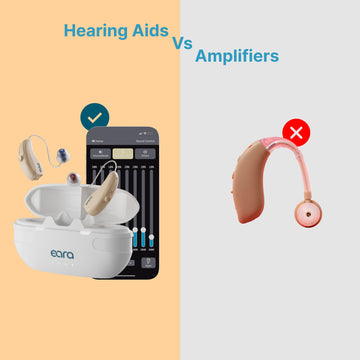Frequently Asked Questions
1. What is hearing loss and how does it affect individuals?
2. What are the main types of hearing loss?
3. How does hearing loss impact emotional well-being?
4. What role do hearing aids play in managing hearing loss?
5. What practical tips can help manage hearing loss in daily life?
Hearing loss affects millions of people around the globe, and its impact can be profound, transcending simple communication difficulties. For those experiencing this challenging condition, daily life often presents unique obstacles that can affect both emotional well-being and relationships. Whether a loved one is dealing with hearing loss or you are seeking to understand the condition better for yourself, this article explores the numerous ways hearing loss can shape everyday experiences while emphasizing the importance of seeking appropriate solutions like hearing aids.
The Many Faces of Hearing Loss
Hearing loss is not a one-size-fits-all condition. It can vary in type, severity, and cause, leading to different experiences for each individual. Here, we distinguish between the main types of hearing loss to shed light on how they can affect daily life.
Types of Hearing Loss
- Conductive Hearing Loss: This occurs when sound waves are blocked from reaching the inner ear. Common causes include fluid buildup, ear infections, or damage to the ear canal.
- Sensorineural Hearing Loss: This is the most common type, arising from damage to the inner ear or auditory nerve. Age-related hearing loss, exposure to loud noises, or genetic factors often contribute to sensorineural hearing loss.
- Mixed Hearing Loss: A combination of both conductive and sensorineural hearing loss, this type can result from various factors impacting an individual's auditory pathway.
The Emotional Toll of Hearing Loss
The emotional implications of hearing loss can be significant. Individuals often experience feelings of isolation, frustration, and sadness. The inability to hear important conversations can lead to a sense of disengagement, not just socially but also within families and at workplaces.
Social Isolation
For many, social gatherings may become daunting if hearing loss is involved. The act of engaging in conversations can feel overwhelming, leading to reluctance in participating. As communication becomes strained, social activities—once enjoyable—may transform into sources of anxiety.
Impact on Relationships
Hearing loss doesn’t only impact the individual; it profoundly affects relationships. Partners, friends, and family members may find it challenging to communicate effectively, which can lead to misunderstandings and frustrations. Open and honest discussions about hearing loss are essential for maintaining healthy relationships, and seeking help through hearing aids or other assistive devices can bridge the communication gap.
The Effects of Hearing Loss on Daily Activities
The impacts of hearing loss extend far beyond socialization. It can influence various aspects of daily life, from performing household tasks to enjoying leisure activities.
Everyday Communication Challenges
Routine conversations with family members, colleagues, or friends can become complicated. Individuals may struggle to hear clearly during phone calls or group discussions, leading to missed information and confusion. This challenge can negatively impact both personal and professional interactions, potentially resulting in decreased productivity and dissatisfaction.
Safety Concerns
Sound plays a crucial role in our safety. Everyday sounds like traffic, alarms, or a ringing doorbell alert us to potential dangers around us. For those with hearing loss, the inability to perceive these auditory cues can lead to hazardous situations. Everyday activities such as walking in busy environments or cooking at home may become more risky and require additional caution.
Workplace Implications
Many individuals with hearing loss face challenges in their workplace environment. This can manifest in difficulties during meetings, understanding clients, or participating in collaborative projects. The need for accommodation is essential, and employers should foster an inclusive work environment by providing support and considering tools like hearing aids to help employees thrive.
Navigating the Challenges: The Role of Hearing Aids
Fortunately, individuals facing challenges due to hearing loss can find hope and assistance through hearing aids. These devices are designed to amplify sound, making it easier for individuals to hear and engage in daily conversations and experiences.
Understanding Hearing Aids
Hearing aids are available in a variety of styles and technologies to cater to different types of hearing loss. They can significantly improve the quality of life for users, allowing for enhanced communication, lower levels of frustration, and an overall sense of inclusion in social and familial interactions. Many models incorporate advanced features such as Bluetooth connectivity, allowing users to connect seamlessly with their smartphones and other devices.
Seeking Professional Help
It’s crucial to consult with an audiologist or hearing care professional to determine the most suitable option based on individual conditions and lifestyle needs. These professionals can provide comprehensive hearing assessments, helping to customize solutions that will best fit the individual’s hearing loss and preferences.
Practical Tips for Managing Hearing Loss in Daily Life
While using hearing aids can make a significant difference, several additional strategies can further facilitate smoother daily interactions for those experiencing hearing loss.
- Be Open About Your Hearing Loss: Don't hesitate to inform friends and family about your challenges. This approach can encourage them to speak clearly and be patient when communicating.
- Choose the Right Environment: Opt for quieter venues for social gatherings or meetings. Reducing background noise can dramatically enhance hearing clarity.
- Utilize Visual Cues: Pay attention to body language and facial expressions. Visual information can provide context and aid in understanding conversations.
- Practice Active Listening: Focus on the speaker and avoid distractions. Repeat back what you understand to ensure clarity and enhance effective communication.
Community Support and Resources
There’s strength in numbers, and individuals with hearing loss can often find solace and support within community groups and organizations dedicated to this cause. These platforms facilitate open discussions, share personal experiences, and provide valuable resources to help people cope with the daily realities of hearing loss. From virtual forums to local meet-ups, connecting with others can foster a sense of belonging and understanding.
Advocacy and Awareness
Raising awareness about the impacts of hearing loss is crucial in society. Advocacy groups work tirelessly to promote education on this issue, combating misconceptions, and underscoring the importance of early intervention and accessibility. Supporting these initiatives can contribute to reducing stigma and improving conditions for those affected.
Time to Take Action: Embrace Life with Open Ears
If you or someone you love is navigating the challenging waters of hearing loss, remember that there are resources available to aid in this journey. By understanding the impact of hearing loss, we foster compassion and connection. Evaluate whether hearing aids could enhance daily life and consider reaching out to professionals who can help make the best choice for your auditory health.
Through awareness, community support, and modern solutions like hearing aids, individuals experiencing hearing loss can reclaim their daily lives, foster connections, and embrace a world full of vibrant sound.

























